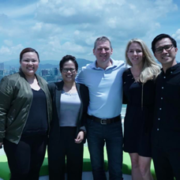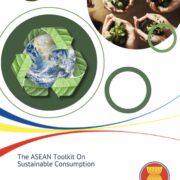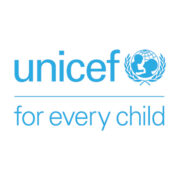Humanity & Inclusion (formerly known as Handicap International) and FWD Group recently announced a partnership to support youth with disabilities in Indonesia and the Philippines by improving their access to employment and entrepreneurship opportunities. The partnership is part of FWD Group’s wider Community Care programme which aims to advocate equal opportunities and empower people with disabilities in Asia.
FWD Group’s investment will help Humanity & Inclusion train at least 380 youth with disabilities across Indonesia and the Philippines to help them secure sustainable employment or entrepreneurial opportunities. These will include:
- Individual support to youth with disabilities and assessment of their needs, capacities, and interests;
- Improved access to health and rehabilitation facilities as well as social services;
- Capacity-building initiatives such as soft skill trainings and vocational skills development;
- Support to youth with disabilities in creating or strengthening their own micro-enterprises.
Humanity & Inclusion will also work with selected employers – including FWD Group – across the two target countries to improve their understanding and capacity in employing people with disabilities.
Humanity & Inclusion Regional Program Director Reiza Dejito said, “To advance economically in developing countries, we have to invest in youth, but too often young people with disabilities are overlooked in employment and entrepreneurship opportunities. FWD Group and Humanity & Inclusion seek to support youth with disabilities in Asia and help them to have the same chance at improving their lives as their non-disabled peers.”
FWD Group Chief Executive Officer Huynh Thanh Phong said, “At FWD, we all believe in the importance of giving back and helping to create change for communities in need. We were inspired by Humanity & Inclusion’s Nobel Peace Prize-winning work around the world to affect change for people with disability and wanted to bring similar programmes to Asia. Our partnership with Humanity & Inclusion reinforces our commitment to empower people with disabilities in Asia, and together we hope we can build a future with a difference for the community.”
15% of the world lives with a disability1. In Asia Pacific, the International Labour Organisation (ILO) estimates that there are about 370 million people with disabilities, out of which about 65% are of working age. Even so, more than 80% of people with disabilities are unemployed in the region.
In the Philippines, data shows that 13%2 of the national population lives with a disability. Only about 10%3 of the employable people with disabilities in the country are engaged in regularly paid work, with the public sector providing the majority of career opportunities. Meanwhile, in Indonesia 11%4 of the nation’s population has mild to severe disabilities. The ILO estimates that more than 74% of Indonesia’s people with disabilities – close to 13 million individuals – are unemployed.
FWD Group’s Community Care programmes are part of its commitment to be actively involved in helping to achieve the United Nations Sustainable Development Goals (SDGs), especially Goal 10 which targets “Reduced Inequalities” and Goal 8 which targets “Decent Work and Economic Growth”. Through partnerships with organisations such as Humanity & Inclusion, FWD Group aims to improve the quality of life of people with disabilities in Asia by promoting inclusion and improving access to rehabilitation and vocational training. These, hopefully, in turn will generate positive change and economic empowerment for people with disabilities and the communities.
In line with the new Community Care programmes, FWD has also updated its responsible investment policy to exclude direct investment in companies involved in
production of controversial weapons. This policy mandates that FWD Group and its subsidiaries will not knowingly make any direct investment in companies involved in the production of weapons such as cluster-munitions, anti-personnel mines, depleted uranium weapons, biological and chemical weapons.







